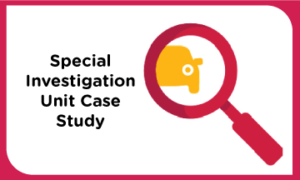Insurance fraud is a deliberate deception to obtain an illegitimate financial gain from an insurance company. It can take various forms, such as inflating claim amounts for property damage, faking accidents or injuries, or providing false information to secure a policy. This criminal activity not only defrauds insurance companies but also increases premiums for all policyholders, impacting everyone’s finances.
This case begins when a policyholder filed a vandalism claim eleven days after purchasing an auto policy with Maryland Auto. Although a claim filed so soon after the policy inception date doesn’t necessarily mean the claim is fraudulent, it is considered to be a suspicious loss indicator, or “red flag.”
The vehicle was already at a repair shop, where it was examined by an auto estimator. An examination of the vehicle’s damages revealed striking similarities to a previous claim filed six days earlier. The prior claim, made only five days after policy inception, was denied as the damages were found to have occurred before the policy’s start date. This was determined by the date on the police report filed through the Prince George’s County Police.
When questioned about the similar damages, the policyholder claimed that he had repaired the damages from the prior claim and that these damages were new. However, photographic evidence from the initial claim clearly displayed the same damage, including signs of rust and other indicators of pre-existing conditions.
Due to the obvious presentation of a fraudulent claim, the damages were denied, and the case was referred to the Insurance Fraud Division of the Maryland Insurance Administration for misrepresentation by the policyholder.




